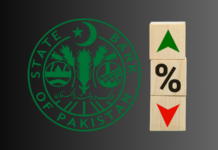ISLAMABAD
Pakistan has fallen in the bottom twenty countries in the latest edition of the International Property Rights Index (IPRI). The index mentioned that despite a focus on infrastructure-led growth, the future of majority of the people will remain bleak unless the institutional environment is significantly reformed.
The 2017 IPRI was officially launched in Buenos Aires in partnership with the Argentinian think-tank Libertad Progreso. A local research institute PRIME in partnership with the Property Rights Alliance unveiled the IPRI 2017 here on Wednesday.
In the IPRI, Pakistan is ranked very poorly, at 121 with a low score of 3.54 put of 10. In comparison, India is ranked at 54 with a 5.56 score. IPRI measures the strength of physical property rights, intellectual property rights, and the legal and political environments that contain them.
Covering 127 countries – 98 per cent of world GDP, and 93 per cent of the world’s population – the Index highlights the vital role property rights play in shaping society and the global economy.
Executive Director PRIME Ali Salman said private property rights, along with a stable political environment and a sound legal framework hold the key to inclusive economic development and prosperity for all Pakistanis. Such goals will remain elusive without ensuring these fundamentals despite impressive growth numbers in recent times.
Famed economist and author of ‘The Mystery of Capital’, Hernando De Soto, commented that the findings in the Index this year were “striking,” and that it offered hopeful insights for world leaders tackling poverty and terrorism in their countries.
The Index includes with correlations between the IPRI scores and other measures of social and economic well-being. This year the IPRI ratings correlated most strongly with global entrepreneurship (GEI), network readiness (NRI), civic activism, the human development (HDI), the number of researchers in R&D, and environmental performance (EPI-Yale).
Additionally, the Index includes helpful case studies from activists in-the-field showing how diverse property rights issues can be, and how progress can be achieved no matter the country or how poorly rights have been infringed in the past.
The report is conducted yearly by the Property Rights Alliance in Washington D.C. to which Policy Research Institute of Market Economy (PRIME) is a partner. This year’s report represents countries that form 98 per cent of world GDP and 93 per cent of the world’s population.

























